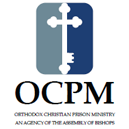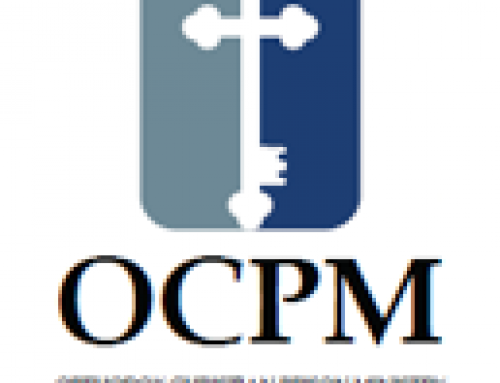This post was originally published on this site
“God is the life of all free beings. He is the salvation of all, of believers and unbelievers, of the just and the unjust, of the pious and the impious, of those freed from the passions or caught up in them, of monks or those living in the world, of the educated or the illiterate, of the healthy or the sick, of the young or the very old.” -St. John Climacus, The Ladder of Divine Ascent, Step 1
To St. John Climacus’ quote above we might include those in prison and those outside of prison. We are all God’s “free beings,” and He is the salvation of all of us! And yet, it is all too easy for those of us outside of prison to see this differently, to assume we know more about God or how to pray to Him than those inside prisons. But this is not necessarily true.
A wealthy family once invited St. Paisios into their home and lamented that so many people were suffering while they lived comfortably in a large house. The saint’s response surprised them. “If Christ were to ask me, ‘Where should I put you, in a house like this or in prison?’ I would reply, “In a dark prison.’ Because a prison would do me good; it would remind me of Christ, the holy martyrs, the ascetics who lived in the holes of the earth, it would remind me of monastic life…I would rather spend one thousand nights in a prison cell, than one day in a plush house” (Spiritual Counsels Vol. I, 183).
St. Paisios rightly saw the potential of any place—even the darkness of a prison cell—to become a place of holiness. What may appear to be only places of suffering, the saints understand as invitations to God’s grace and healing power. Whether we enter suffering voluntarily (not eating meat or dairy, for example) or involuntarily (being arrested and imprisoned), God’s strength is still made perfect in our weakness (2 Corinthians 12:8).
OCPM staff and volunteers have witnessed prisoners striving toward God in ways that we firmly believe will inspire you to do the same, not just engaging in spiritual practices most Orthodox Christians do—praying at set times of day, fasting, etc.—but doing these practices amidst a level of violence and loneliness most of us will never have to bear. While most Orthodox Christians pray their morning and evening prayers from the comforts of their living rooms, prisoners are bending their knees on bare cement, surrounded by constant noise throughout all hours of the day and night. Some prisoners are praying from a cell they are only allowed to leave for a quick restroom and shower break.
Throughout the season of Great Lent, the Church asks all of us to make greater efforts in prayer, fasting, and almsgiving in order that we may grow closer to Christ together as one Body. In our new Lenten series, #AscendingTogether, published weekly on our Facebook and Instagram pages, we will be pairing one inmate’s example of repentance and prayer with a quote from The Ladder of Divine Ascent, the spiritual classic that is read in every Orthodox monastery across the world during this season.
What do inmates have to teach us, the un-incarcerated, about repentance, prayer, or joy? We hope you’ll join us as we explore these questions together.
If you want to read more of our Lenten series, “Ascending Together,” subscribe here, or follow Orthodox Christian Prison Ministries on Facebook and Instagram @TheOCPM.




